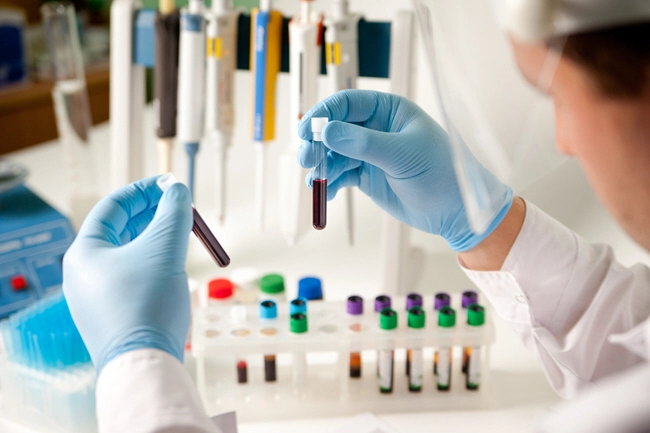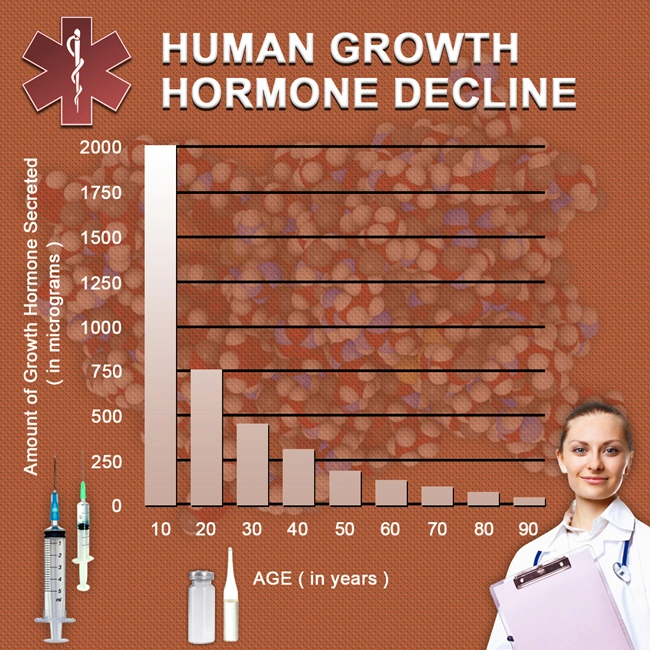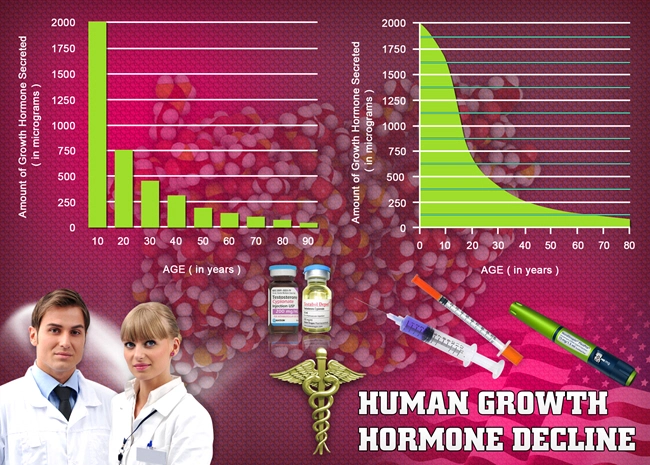
Are you always feeling tired and suffer from fatigue ?
Having trouble losing weight ?
Often experiencing brain fog ?
The cause may not be what you think, and also not necessarily the much mentioned covid19 virus / disease related ! Keep reading and learn the facts about the overlooked and neglected organ that is so vital to all aspects of our health and well-being: Your Liver
Causes of fatigue in men and women
Video Link: https://vimeo.com/262598178
Video Download: Click Here To Download Video
Video Stream: Click Here To Stream Video
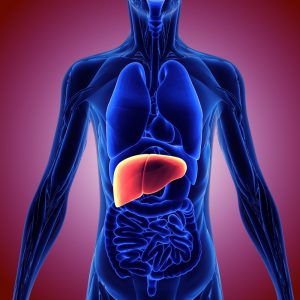
Read the three questions that were just asked. Answer them honestly.
Then add joint pain, age spots, weak, flabby muscles, elevated cholesterol and triglyceride levels, an under-performing immune system, skyrocketing blood pressure and digestive issues to the list of afflictions you may be experiencing.
Not a beautiful picture or a holiday parade. More like a parade of nightmares that reduce your quality of life.
Any of these problems deserve all of your attention to discover their cause and deal with it. You and your doctor should never leave any stone unturned.
Causes Of Fatigue Includes Your Liver
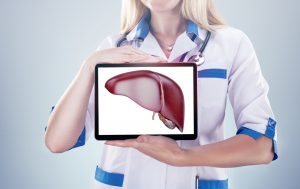
That’s correct. Your liver is always busy performing several hundred duties.
This three pound, football-shaped organ is continuously on the job. And you need to be thankful it is always on call. Did you know that the liver…
Video Link: https://vimeo.com/288898110
Video Download: Click Here To Download Video
Video Stream: Click Here To Stream Video
Regulates more than 50,000 enzyme systems to control metabolic activity throughout the entire body
Plays a crucial role in stabilizing hormones, including essential sex hormones like testosterone and estrogen
Filters gallons of blood daily, which removes toxic chemicals and bacteria from your system. This also includes breaking down ammonia that is manufactured in the colon. This keeps you alive.
Stores fat-soluble vitamins (A, D, E, and K) and helps them absorb into your tissues
Produces nearly a quart of bile daily, which breaks down fat
Metabolizes the nutrients you eat (proteins, carbohydrates, and fats) to provide you with energy. The liver stores glucose and releases it depending on the body’s energy needs
Helps the kidneys maintain electrolyte and water balance
Removes broken-down red blood cells
Detoxifies every substance that is toxic to the body
Stores excess blood and facilitates blood-clotting
Boosts your immune system. The liver is jam-packed with T-cells, B-cells, and natural disease-killer cells. When the liver is not functioning at its highest levels, your immune system suffers
Performs many more functions...way, way more, too many to list
Video Link: https://vimeo.com/262597920
Video Download: Click Here To Download Video
Video Stream: Click Here To Stream Video
WOW! What a powerhouse! However, there’s a catch. As with all things related to health, aging is a net negative -- and that includes the liver as well.
Of course, it’s never a good idea to abuse your liver by overworking it. But a young liver can withstand abuse far more efficiently than an older one. Think about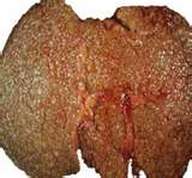 it. We live in an increasingly toxic environment.
it. We live in an increasingly toxic environment.
Everyday household products are loaded with chemicals that are difficult, if not impossible to pronounce. Air pollution and unfiltered drinking water also add to the liver’s workload.
More horrifying, when the liver is overwhelmed and overworked the result may be a shortening of your telomeres. Telomeres are the caps at the end of each DNA strand.
To understand the function of telomeres, here’s a simple analogy. Your shoelaces on your tennis shoes have a protective cover at their ends.
Without this cover, it would become increasingly difficult to tie your shoes. Eventually, the cap wears down from continual use, and the result is either new shoelaces or a new pair of shoes.
Telomeres work in the same manner. They shrink at different rates, and the rate of shortening determines how fast you age. The formula is simple: the shorter the telomeres, the quicker you age.
Remember, the liver provides glucose to meet the body’s energy needs. A sluggish liver = a more inefficient conversion of glucose to energy = more fatigue, weight-gain and more fat clogging the liver.
And That’s Not Even Considering the Effects of Alcohol on the Liver
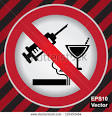
Excess alcohol consumption damages and eventually kills liver cells by causing oxidative stress. This occurs when the liver is forced to work over time to process massive amounts of alcohol. This sets off a series of chemical reactions that can damage liver cells.
If alcohol abuse continues, the result may be severe inflammation of the liver cells. In a desperate attempt to preserve itself the liver will develop scar tissue to halt the killing of its cells. This is called cirrhosis.
Excessive alcohol use can also damage the large intestine. The result is a flood of toxins released that find their way back into the liver. The result? More scarring and increased inflammation.
Liver Disease is Increasing, and it’s Not Only Caused by Alcohol
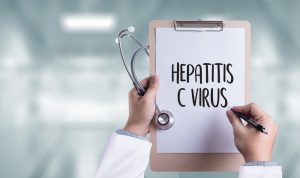
Chronic hepatitis (hepatitis C) is a silent killer that may lie dormant for decades before any symptoms manifest. Left untreated, hepatitis C can lead to cirrhosis and eventually liver cancer.
If you were born between 1946 and 1964, you are advised to be tested for this insidious killer.
The fatty liver disease also called steatosis, is on the rise. As with hepatitis, there may be no symptoms for decades; then symptoms arise such as an enlarged liver, fatigue, and pain in the upper right abdominal area.
This condition is defined as a buildup of fat in the liver. Like all organs, every liver has at least a small amount of fat which is needed for the liver to function at a healthy level. However, when the level of fat in the liver accumulates to the 5-10% level, this may indicate fatty liver disease.
There are two types of fatty liver disease: Alcoholic liver disease (ALD) and Nonalcoholic fatty liver disease (NAFLD).
Although there is some uncertainty about the causes of fatty liver disease, the condition has high-fat with being overweight, bad eating habits, heredity, developing insulin resistance, having elevated blood sugar levels and having high-fat concentrations in the blood, in particular triglycerides.
As with other liver afflictions, fatty liver disease can eventually lead to cirrhosis and liver cancer. Additionally, the best way to check your liver’s function is a blood test.
If your Alanine transaminase (ALT) and Aspartate transaminase (AST) levels are elevated beyond the normal range, this may indicate damage or inflammation to your liver. Don’t ignore this! Check with your doctor immediately.
If your level of triglycerides (a type of fat that provides a vital function) in your blood is greater than 250 on a standard blood lipid profile, consider this a warning signal that fatty liver disease may be looming on your horizon.
Liver disease is serious...deadly serious. Here are some facts and numbers to consider:
Annually, more than 100,000 patients are hospitalized and diagnosed with chronic liver disease or cirrhosis.
According to the Center for Disease Control (CDC), in 2014, 38,170 deaths occurred in America as a result of liver disease. This makes liver disorders the 12th leading cause of death in the USA.
Among the baby boomer generation (born 1946-1964) it is number 4 in mortality, right behind cancer, stroke and heart disease.
Hopefully, you can see the critical importance of maintaining your liver’s continued health and proper functioning and avoid fatigue
. Here are a few ideas on how to keep your liver smiling:
Watch your weight. Fact: Obesity does nothing...absolutely nothing to improve your health in any aspect. And that includes your liver. Slash your intake or eliminate simple carbohydrates (baked goods, soda, cookies, etc.), processed foods that are loaded with preservatives, and trans-fats. Probiotic foods and supplements will aid in digestion and promote overall gut health, which will make your weight-loss efforts a bit easier. Eat smart. Load up on fresh fruits and vegetables, lean protein, healthy carbohydrates, and stay hydrated.
Be aware of toxins in your environment. Air filters, water filters, and natural sprays and cleaning substances will help you minimize toxins in your home.
Enjoy your coffee guilt-free. Research has shown that coffee drinkers may lower the risk of liver problems, so if you enjoy coffee keep drinking it. No need to overdo it; research points to moderate consumption delivering the most protection.
Alcohol. This is a challenge for many people. When it comes to socializing, we live in an alcohol-based society. But your liver doesn’t know that. Even occasional binge drinking can cause a spike in liver enzymes. If you have no liver issues, keep alcohol in moderation. If you have even the hint of a liver problem total avoidance is the best and perhaps the only road to go.
Beware of constipation. Remember the liver’s function: remove toxins from the body. Constipation allows toxins to accumulate in the body. Guess where they end up? That’s right, your liver. Don’t make your liver work harder than necessary. Stay hydrated and load up on fiber.
Get off that couch! In addition to all the benefits that physical fitness delivers, liver health is one of them. Regular workouts will boost the oxygen transporting ability of the blood, which means more oxygen speeds toward the liver, enhancing its functioning. Exercise will also ramp up your mood, erase brain fog, strengthen your muscles and reduce the risk of scarring and cirrhosis in Hep C patients. All-in-all, exercise delivers way too many benefits for anyone even to consider staying on the couch...especially people with liver problems.
Watch what you put into your system. Just because a substance is “natural” or bought over-the-counter (OTC) does not mean it is always safe to ingest. The worst of the worst seem to fall into two broad categories: weight-loss and bodybuilding supplements. Be extremely careful when it comes to “fat-burners,” and some muscle-building formulas may have a bit more in them than the label reads. Certain herbs (kava, germander, chaparral, shark cartilage, and mistletoe), certain vitamins and minerals (iron, significant amounts of vitamin A, and niacin), and some OTC medications (substances that contain acetaminophen) are extremely problematic. Finally, oral anabolic steroids are guaranteed to elevate your liver enzymes, at least temporarily. If you have the slightest hint of liver damage, any oral anabolic must be “off-limits”!
Are there supplements that may help the liver?
Yes! We have covered in detail what to avoid. Here are some supplements that have proved beneficial to some people. This is a debatable issue, and before you try any of these substances, please check with your physician.
Milk Thistle. This is considered the “granddaddy” of all natural supplements for liver health. With a rich history of more than 2,00 years of helping people with liver disease, milk thistle belongs at the top of your shopping list for liver protectors. The active ingredients in milk thistle are silybin, silydianin, and silychristin, three flavonoids that are potent anti-oxidants. How does milk thistle provide a protective shield to your liver? One study concluded that milk thistle stabilizes the cell membrane and boosts protein synthesis. This speeds up the process of liver regeneration. Other studies state that milk thistle puts up a powerful moat that stops toxins from entering the liver.
Alpha-lipoic acid (ALA). This potent anti-oxidant acts like “Pac-man” by gobbling up free radicals, the damaging atoms with odd-numbered (unpaired) electrons. Left unchecked, free radicals wreak havoc throughout the body, and that includes the liver. One of the keys to the effectiveness of ALA is that it is both water and fat-soluble, which means it can travel anywhere in the body and go to work tearing free radicals to shreds. ALA is also a known precursor of glutathione, a substance that is considered by many research scientists to be “the master-anti-oxidant.” Studies have shown ALA can lower the fibrosis (scarring) of the liver.
N-Acetyl-L-Cysteine (NAC. Another name for glutathione is “the master detoxifier.” The problem with glutathione is that it is not easily absorbed when taken orally. This is where NAC comes roaring to the rescue. NAC, like ALA, is a glutathione precursor that enters the liver and cleans house of the toxins and heavy metals that accumulate in a compromised liver. If that weren’t enough, NAC also delivers a smooth flowing river of blood to the liver. This provides the crucial nutrients that this vital organ needs to remain healthy.
Licorice Root. Grim fact: an impaired liver all-too-often is associated with compromised adrenal glands. Licorice root directly improves adrenal gland function by delivering a substance called glycyrrhizin to the adrenals. Glycyrrhizin inhibits the release of adrenal hormones (cortisol and progesterone) which eases the adrenals workload. This has a spillover effect on the liver, easing it’s workload as well.
Phosphatidylcholine (PC). PC is more commonly known as a nootropic, or “smart pill” since it increases the level of choline in the brain. But it is also super for the
liver. Why? Because it sweeps away fat deposits and excess cholesterol in the liver.
Now is the time to stop ignoring your liver
Hopefully, by now you can see just how vital this powerhouse organ is. Like an unsung hero, the liver keeps soldiering on, dealing with every type of insult, abuse, and assault thrown its way.
Until it doesn’t. Tragically, all-too-many people have lived in complete and total denial of their liver problems even after they were aware of them. For some, by the time they decide to change their lifestyle and try to reverse the damage, it is too late.
There are many promising stem cell cures and pharmaceutical trials for liver disease that are in the research and development stage. But that won’t do you any good whatsoever if your liver decides that enough is enough...and shuts down.
Don’t let this happen to you. Your liver wants to keep up the battle and protect you from toxins. But it can’t do it alone. When it quits you quit.
At our clinic, we specialize in hormone replacement. We are experienced in human growth hormone (HGH), testosterone, and sermorelin replacement therapies. But we never neglect any other areas of your good health, and that includes the continuing optimal functioning of your liver.
Follow these simple guidelines and stop liver problems before they begin!
Video Link: https://vimeo.com/262597830
Video Download: Click Here To Download Video
Video Stream: Click Here To Stream Video
References
Fatigue in liver disease: Pathophysiology and clinical management
Contact Us Today For A Free Consultation
Dear Patient,
Once you have completing the above contact form, for security purposes and confirmation, please confirm your information by calling us.
Please call now: 1-800-380-5339.
Welcoming You To Our Clinic, Professor Tom Henderson.

- Constantly Tired? Can't Sleep? [Last Updated On: March 14th, 2025] [Originally Added On: March 23rd, 2019]
- How to Understand and Deal with Cirrhosis [Last Updated On: March 13th, 2025] [Originally Added On: April 12th, 2019]
- Insomnia: The Silent Killer [Last Updated On: March 12th, 2025] [Originally Added On: April 30th, 2019]
- Lipocine Reintroduces Tlando [Last Updated On: August 19th, 2025] [Originally Added On: March 18th, 2020]
- High-Intensity Interval Training Boosts Both Body and Mind [Last Updated On: February 20th, 2025] [Originally Added On: May 10th, 2020]
- Tattoo Safety: What to Know Before You Get a Tattoo [Last Updated On: February 28th, 2025] [Originally Added On: June 2nd, 2020]
- Testosterone and Fatherhood [Last Updated On: April 25th, 2025] [Originally Added On: October 12th, 2020]
- L-Arginine: The Key to Both Heart Health and Sexual Health [Last Updated On: March 10th, 2025] [Originally Added On: December 4th, 2020]
- The Importance of Hormonal Balance for Menopause [Last Updated On: February 20th, 2025] [Originally Added On: December 14th, 2020]
- Menopause Drugs: Study Stokes New Debate Over Cancer Risks [Last Updated On: March 8th, 2025] [Originally Added On: December 16th, 2020]
- Study Examines Link Between Growth Hormones and Osteoporosis [Last Updated On: March 11th, 2025] [Originally Added On: December 17th, 2020]
- Everything You Need to Know About Clomiphene [Last Updated On: March 9th, 2025] [Originally Added On: December 20th, 2020]
- Fast Facts About DHEA: What You Need to Know About This Natural Steroid [Last Updated On: August 16th, 2025] [Originally Added On: March 4th, 2021]
- Enjoy a Few Drinks Weekly? Beware: This May Be a Link to Low Sperm Counts and Quality [Last Updated On: March 6th, 2025] [Originally Added On: August 16th, 2021]
- Hormone Therapy May Benefit Some Women's Hearts [Last Updated On: February 20th, 2025] [Originally Added On: August 18th, 2021]
- HGH Male Blood Panel [Last Updated On: October 28th, 2021] [Originally Added On: September 28th, 2021]
- Growth Hormone Battles Osteoporosis [Last Updated On: February 26th, 2025] [Originally Added On: October 11th, 2021]
- Growth hormone = More Sleep = Better Sex! [Last Updated On: March 7th, 2025] [Originally Added On: October 11th, 2021]
- Low Testosterone and Hypogonadism: The Difference [Last Updated On: May 19th, 2025] [Originally Added On: October 12th, 2021]
- The Link Between Testosterone and Tylenol [Last Updated On: February 21st, 2025] [Originally Added On: October 12th, 2021]
- Hormone Replacement Therapy and Aerobics May Ease Menopause Symptoms [Last Updated On: February 19th, 2025] [Originally Added On: October 13th, 2021]
- Growth Hormone and Lifestyle = An Extended Lifespan [Last Updated On: February 23rd, 2025] [Originally Added On: October 13th, 2021]
- Growth Hormone, Foods, and Supplements for Healthy Skin [Last Updated On: May 10th, 2025] [Originally Added On: October 13th, 2021]
- Hormone Replacement Therapy, Menopause, and Cancer [Last Updated On: February 24th, 2025] [Originally Added On: October 13th, 2021]
- Growth Hormone, Exercise, and Osteoporosis: The Facts! [Last Updated On: February 22nd, 2025] [Originally Added On: October 13th, 2021]
- Hormone Replacement Therapy and Menopause [Last Updated On: February 25th, 2025] [Originally Added On: October 13th, 2021]
- Testosterone and Women [Last Updated On: February 18th, 2025] [Originally Added On: October 13th, 2021]
- Growth Hormone and Smoking [Last Updated On: February 19th, 2025] [Originally Added On: October 14th, 2021]
- Testosterone, Statins, and Prostate Cancer [Last Updated On: February 18th, 2025] [Originally Added On: October 19th, 2021]
- Researchers Investigate Declining Sperm Counts, Find Chemicals Rampant [Last Updated On: May 23rd, 2025] [Originally Added On: June 14th, 2022]
- Understanding the Role of Hormonal Balance in Menopause [Last Updated On: February 7th, 2025] [Originally Added On: February 7th, 2025]
- Introduction: Benefits of Hormone Replacement Therapy [Last Updated On: February 8th, 2025] [Originally Added On: February 8th, 2025]
- The Influences and Benefits of High-Intensity Interval Training [Last Updated On: February 8th, 2025] [Originally Added On: February 8th, 2025]
- The Link Between Human Growth Hormone, Exercise, and Osteoporosis [Last Updated On: February 9th, 2025] [Originally Added On: February 9th, 2025]
- The Therapeutic Benefits of Human Growth Hormone [Last Updated On: February 16th, 2025] [Originally Added On: February 16th, 2025]
- Introduction: The Reality of Menopause [Last Updated On: February 18th, 2025] [Originally Added On: February 18th, 2025]
- An Introduction to the Benefits of Human Growth Hormone Replacement Therapy [Last Updated On: February 19th, 2025] [Originally Added On: February 19th, 2025]
- Introduction to Hormone Replacement Therapy [Last Updated On: February 20th, 2025] [Originally Added On: February 20th, 2025]
- Introduction: Evaluating the Safety of Hormone Replacement Therapy [Last Updated On: February 23rd, 2025] [Originally Added On: February 23rd, 2025]
- The Rise of Tattoos in America [Last Updated On: February 23rd, 2025] [Originally Added On: February 23rd, 2025]
- The Influence of Growth Hormone and Sleep on Libido [Last Updated On: February 27th, 2025] [Originally Added On: February 27th, 2025]
- Introduction: The Association Between Alcohol Consumption and Sperm Quality [Last Updated On: February 27th, 2025] [Originally Added On: February 27th, 2025]
